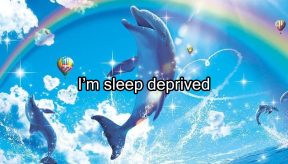When we’re 17 or 18, we make one of the biggest decisions of our lives. For better or for worse.
With an estimated 1.3 million Canadians enrolled in university, and another 750,000 enrolled in colleges across the country, it’s not surprising that Canada is one of the most educated countries in the world. But when you finally graduate with a ton of student debt, and a piece of paper, is your education really going to be what stands out to employers? Do they care if you went to university versus college? Should you take a gap year before you dive headfirst into a boatload of student debt?
Turns out that the degree or diploma helps, but it’s something much larger that gets you hired.
For many high school graduates, choosing a broad degree in university is the token choice. These degrees give students the ability to not be too specific in the field they want to go into, and allow them to discover what they like and dislike in post-secondary. An exercise in which, CBC’s Ken Coates quoted as being “an expensive and time-consuming exercise in self-discovery,” but often necessary for many students.
“[University] is an expensive and time-consuming exercise in self-discovery.”
There’s a growing shift in the number of university grads continuing their education at a college level upon graduation. In an article from 2013, Colleges Ontario noted that in five years, Ontario alone had seen a 40% increase in university graduates going to college, a common trend among young professionals to garner hands-on experience in a more specified field.
Expensive Self-Discovery
Jenna Pulver, a young professional working at the Sheridan Student Union as a Leadership and Engagement Coordinator, had a similar self-discovery as a university and then college student. Jenna took sociology and human geography at Wilfrid Laurier University, where even though she enjoyed the university experience, she found a lot of what she was learning was theories and ideas, and as a hands-on learner, couldn’t fully connect. “Like many Bachelor of Arts students, I left university feeling like I wasn’t standing out, and I didn’t completely know what I wanted to do,” Pulver explained.
Upon graduating from university, Jenna hoped that by continuing her education at a college level, and by going into a program that was more specific, she would learn practical skills and discover what she really wanted to do. After graduating from social work at Sheridan College, she realized that she loved helping people but social work wasn’t the career path she wanted to take. Thankfully, while she was studying at Sheridan, she got involved with the student union, which led her to re-discovering her passion in leadership development. Her role at the student union allowed her to continue to grow in her profession, and despite her unrelated post-secondary background, she landed a full-time career she was passionate about.
It’s evident that your education alone isn’t going to be what sets you apart, but it does help you learn and develop—even if that means realizing what you’re studying isn’t for you. “You’re going to have to get out there, find something that sets you apart from others, work hard and volunteer. Have coffee, introduce yourself to new people in the position you want to be in, and learn how to network,” Marcy McMillan, a university and college graduate, and communication professional emphasized.
“If everyone has a degree, no one has a degree.”
Alissa Liotti had a similar experience. She was headed for a career in accounting thanks to Wilfrid Laurier’s Business Administration program. Her three co-op placements in different accounting roles encouraged her to network and helped build her resume which naturally prepared her for a successful career in accounting. She was even offered a full-time position at Deloitte Canada a year before she graduated, but something about accounting for Liotti didn’t click. “It took many hours of self-reflecting and soul searching which made me aware that this was not the career path for me,” Alissa explained. This realization led Liotti to the decision in applying for a post-graduate certificate in public relations; to give her the competitive edge and experience she needed to enter the PR industry.
University for many provides the opportunity for self-discovery. It allows young people to learn a lot about themselves and their likes and dislikes—an essential step in figuring out what you want to do for the rest of your life. Adelina Wong, a University of Victoria graduate, explained that it was her involvement in a student organization called AIESEC which gave her the opportunities to test out theories she was learning in class, and really discover her likes and dislikes. “My experiences in AIESEC supplemented my education and gave me a competitive edge, not to mention more feedback on what industries I liked or didn’t like.”
Emma McIsaac, a Lakehead University psychology and environmental science graduate, took a different approach to helping her land a job in marketing—a field she discovered she loved while in university. McIsaac felt that her education helped her apply to jobs, but not necessarily land them. “If everyone has a degree, no one has a degree,” McIsaac said. She explained how she depended on her work experience and community involvement to land her a career within the marketing industry upon graduation—a move that many people would think was impossible without a related degree or diploma. So how did she do it?
McIsaac worked part-time for a marketing company doing in-store promotions throughout university, and when she graduated, she was automatically promoted to a full-time role. By the time McIsaac was ready to move on to her second career a few years later, even though she was only 24 years old, she already banked seven years of marketing experience, which made her standout among other applicants—even if they had related post-secondary education and she didn’t.
Like McIsaac said, having a post-secondary education is necessary for most careers, but it isn’t what is going to make you stand out. In 1990, only a little more than half of Canadians under 30 had completed post-secondary education, but by 2011, that number had risen to almost 80%, a clear indication that education alone doesn’t make you competitive.
“Universities don’t teach you how to be employed, they teach you how to be idealistic, but not how to deal with the daily grind.”
Mel Hattie, a Bishop’s University graduate and current master’s student, explained that she wouldn’t do anything differently when it comes to her education, but she doesn’t necessarily fully credit her university for helping her land a job. “Universities don’t teach you how to be employed, they teach you how to be idealistic, but not how to deal with the daily grind,” Hattie referred to her experience. “They especially don’t teach people how to suck it up.” Hattie explained that several people she knew were unemployed after graduation because they refused to settle for anything other than their dream job—something that is often necessary to build up your experience.
The Real Competitive Edge
After chatting with a plethora of current students, recent grads, and young professionals about their experience job hunting, it was evident that the greater majority depended on their involvement in extracurricular activities, past work or volunteer experience, and their hard work and determination to clinch jobs upon graduation. “Networking and building connections can really give you a competitive edge when applying for jobs,” Julia Moniz, university graduate and financial advisor, advised. “Meeting the right people and making an impact can really help you get your foot in the door, while your education and experience prove you are qualified for the job.”
As I talked to more and more recent grads, I saw a trend in how they unique mix of experiences—from work to volunteer, led them to success in their job hunt. Victoria Stacey, a current marketing professional, explained that it was the co-op opportunity in her program at the University of Waterloo that helped build the skills that she now is using every day. Alissa Liotti explained that her role with the International Association of Business Communicators (IABC) gave her a competitive edge while applying for jobs, and grad, Kesavan Jeganathan, felt that his involvement in extracurricular activities in college got him to where he is today in his career. “Students have to come to terms with the fact that a piece of paper might get you an interview, but it’s always the experience that will help you land the job,” Jeganathan explained.
“Universities take a lot of credit for students’ success stories, but the truth is, how much you succeed is ultimately up to you as an individual.”
With the exception of fields like medicine and law, where degrees are mandatory, choosing university or college isn’t going to stop you from being more or less successful. If you want something bad enough, it’s not a piece of paper that’s standing in your way; it’s whether you want to put in the work to get yourself there. “Universities take a lot of credit for students’ success stories but the truth is, how much you succeed is ultimately up to you as an individual,” Hattie emphasized. “I have had some exceptional teachers who I’m grateful to and who I credit for making me a better person, but if I hadn’t been willing to put in the work, I never would have had the relationships I had with those teachers. University doesn’t make you awesome—you do!”
Stay tuned for part two in this three-part series about post-secondary education and what sets grads apart in the job hunt. The next part will take a look at what career centres at post-secondary institutions are seeing as trends within new grads and provide tips on how to make yourself stand out.
Illustration by SLN’s Satesh Mistry.
*Opinions expressed are those of the author, and not necessarily those of Student Life Network or their partners.




